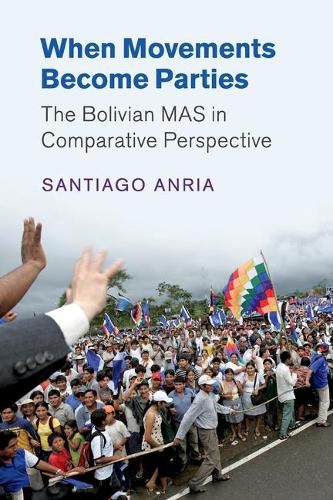Readings Newsletter
Become a Readings Member to make your shopping experience even easier.
Sign in or sign up for free!
You’re not far away from qualifying for FREE standard shipping within Australia
You’ve qualified for FREE standard shipping within Australia
The cart is loading…






Why do some parties formed by social movements develop top-down structures while others stay more open and responsive to their social bases? The first rigorous comparative study of movement-based parties, this book shows not only how movements can form parties but also how movements contribute to parties’ internal politics and shape organizational party models over the long term. Although the existing literature argues that movement-based parties will succumb to professionalization and specialization, Anria shows that this is not inevitable or preordained through an in-depth examination of the unusual and counterintuitive development of Bolivia’s MAS. Anria then compares the evolution of the MAS with that of other parties formed by social movements, including Brazil’s PT and Uruguay’s FA. In a region where successful new parties of any type have been rare, these three parties are remarkable for their success. Yet, despite their similar origins, they differ sharply in their organizational models.
$9.00 standard shipping within Australia
FREE standard shipping within Australia for orders over $100.00
Express & International shipping calculated at checkout
Why do some parties formed by social movements develop top-down structures while others stay more open and responsive to their social bases? The first rigorous comparative study of movement-based parties, this book shows not only how movements can form parties but also how movements contribute to parties’ internal politics and shape organizational party models over the long term. Although the existing literature argues that movement-based parties will succumb to professionalization and specialization, Anria shows that this is not inevitable or preordained through an in-depth examination of the unusual and counterintuitive development of Bolivia’s MAS. Anria then compares the evolution of the MAS with that of other parties formed by social movements, including Brazil’s PT and Uruguay’s FA. In a region where successful new parties of any type have been rare, these three parties are remarkable for their success. Yet, despite their similar origins, they differ sharply in their organizational models.